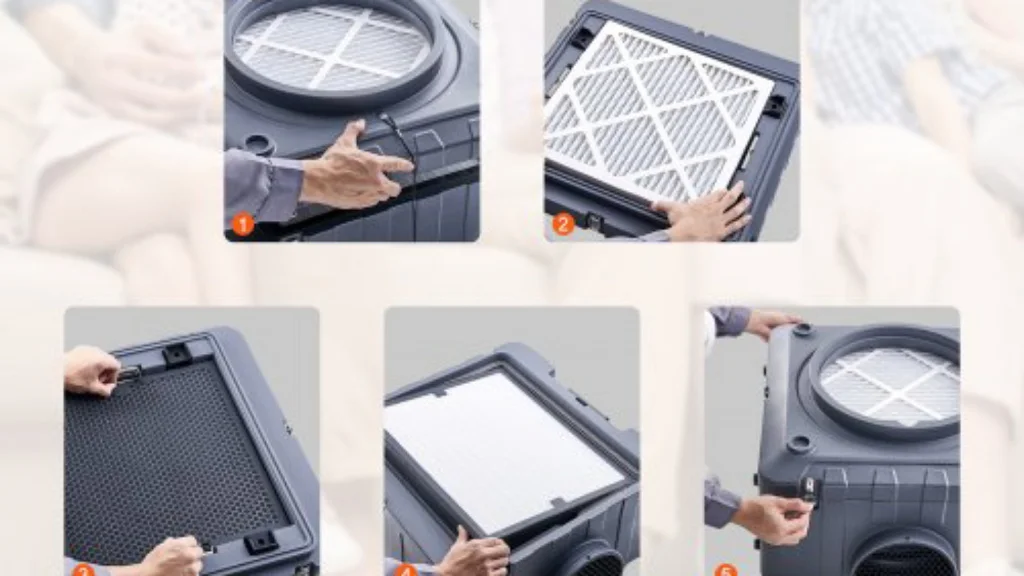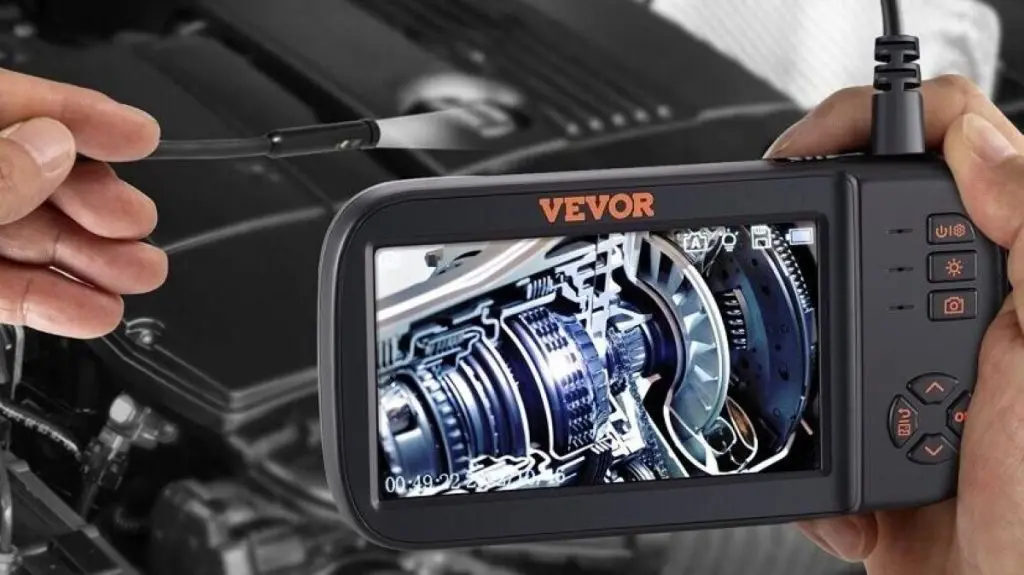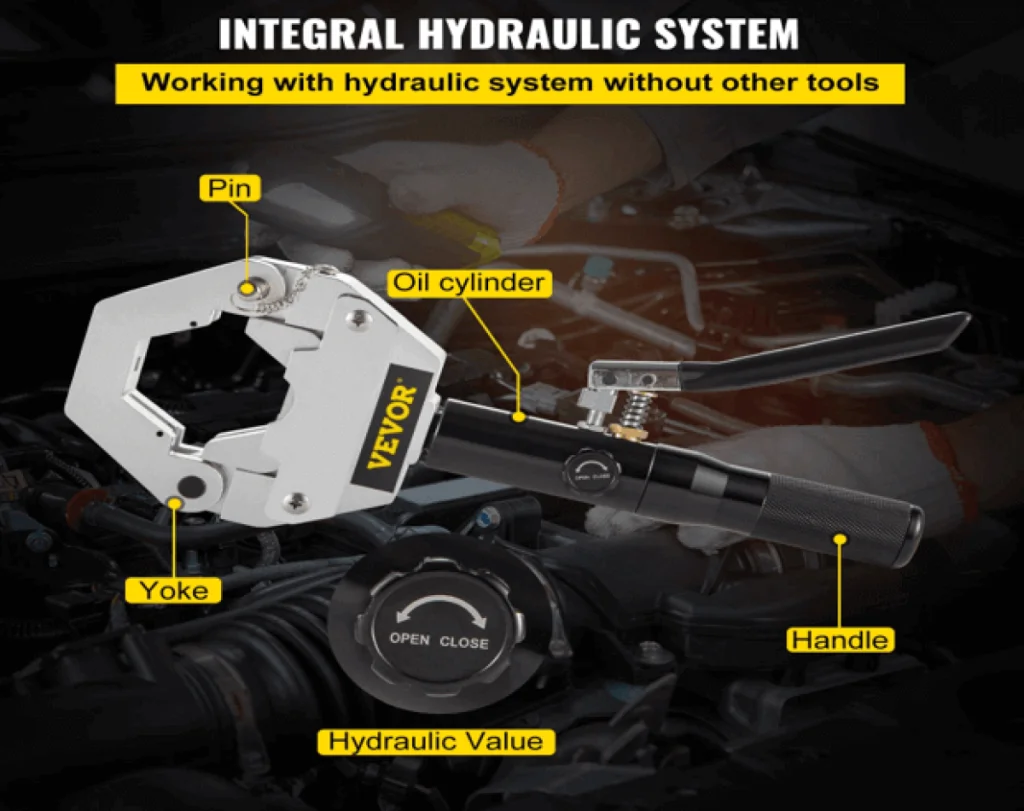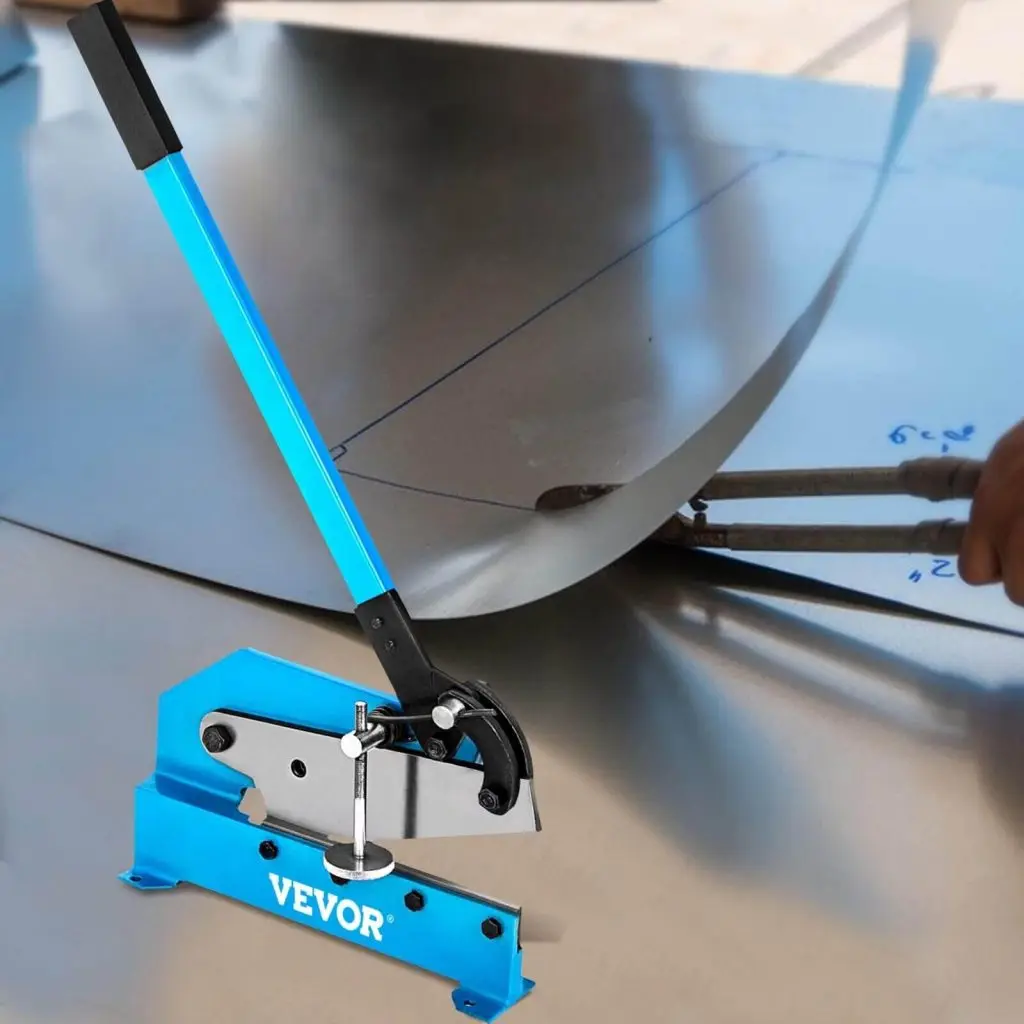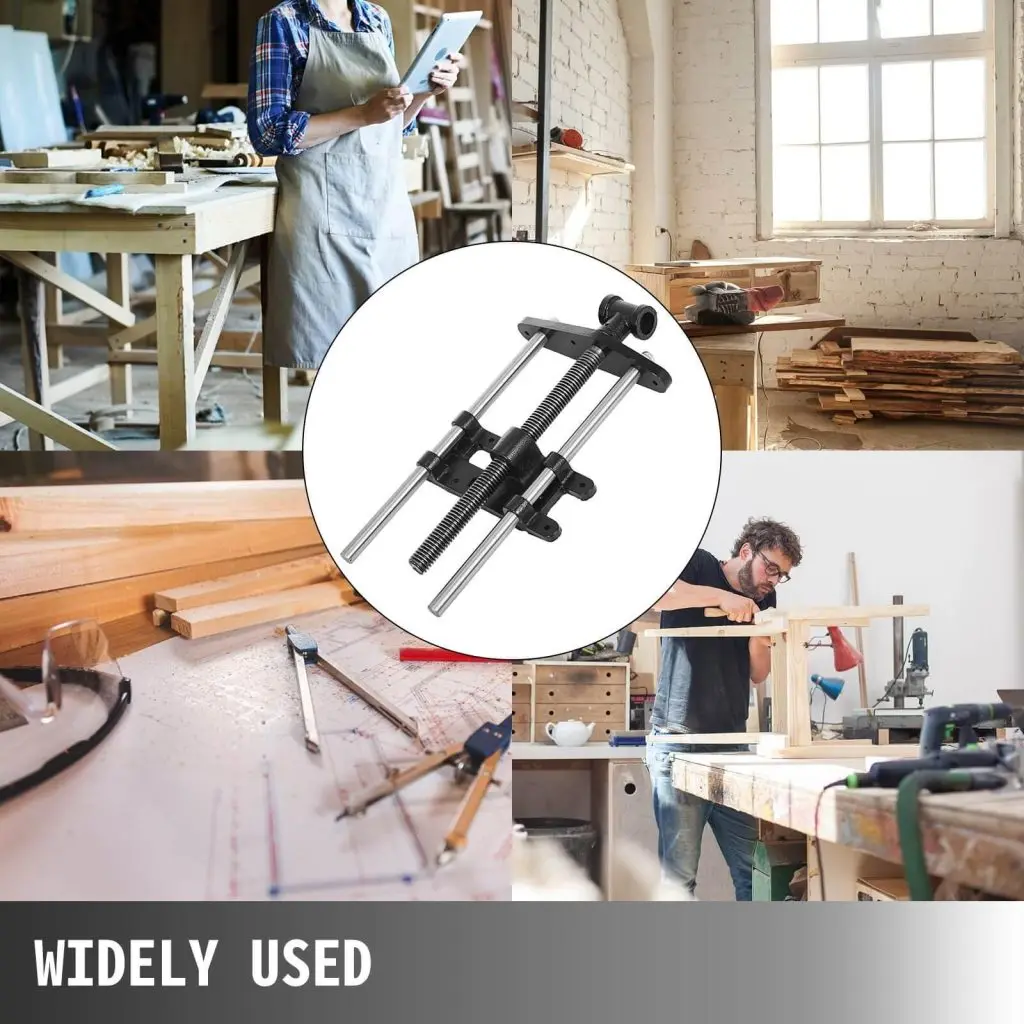Introduction
HEPA filters serve almost every area of our lives. Their reign isn’t going anyway soon. Smooth working, efficient purification, and easy installation, all aspects vote in their favor for home applications or vehicles.
But there is one thing you should know— HEPA filter purification efficiency depends on the dimensions and sizes. That means you must hunt down the right size with the accurate dimensions (no second thought for this perspective).
Are you ready to evaluate your first HEPA filter size chart? This guide is for you— we will explore the different HEPA filter dimensions and their sizes with the impact on the purification processes.
Table of contents
Part 1: How HEPA Filters Work
a) An overview of HEPA Filters
HEPA filters are special mechanical filters that remove the particles from the air. They ensure the entry of only quality air while removing the dust particles before they reach your systems, such as HVAC.
They use air filters that trap the 0.3-micron size of particles from the air passing through them.
b) Uses and Applications
HEPA filters turn the tables in various industries. One of their key uses is in the medical industry. However, here is the complete list of fields harnessing HEPA filters.
Biomedical
HEPA filters are a strong candidate for bacteria and virus removal. They use the UV systems to improve hygiene further and clean up the systems. Such filters offer an efficiency of 99.995%. It is pretty impressive.
Vacuum Cleaners
Vacuum cleaners deploy the HEPA filters to eliminate small allergens and particles. For asthmatic patients, it is truly a blessing. Moreover, they also halt the entry of skin allergens.
Heating and Ventilation
In the HVAC systems, HEPA filters turn out to be the air purifiers and feed the pure air to the system.
Vehicles
Airlines and motor vehicles use the air filters to remove the airborne particles from the smoke. It can improve the lifestyle and minimize the air pollution.
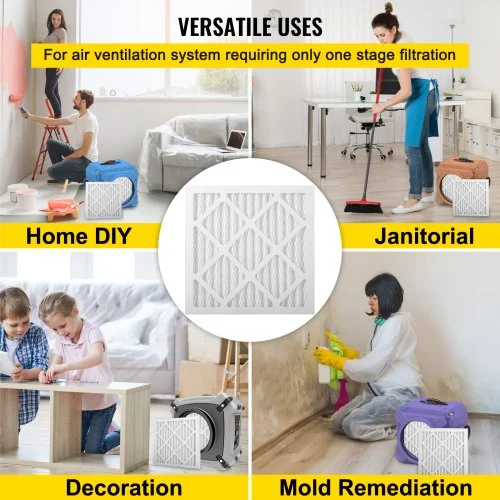
Part 2: Types of HEPA Filters
There are different types of HEPA filters you might come across. The DOE standard defines whether the HEPA is steadfast, ultra, or silent.
Some of the most popular types are here.
True HEPA
A true HEPA filter conforms to the DOE standards for air filtration. Sometimes, it sets up a good comparison with a HEPA filter.
It has quite a high efficiency, removing all the particles up to the size of 0.3 microns. Almost 99.97% of the particles don’t pass through the HEPA filters.
It is commonly used in the HVAC systems and purifies the air systems. You get the proper ventilation for your rooms.
Absolute HEPA
Absolute HEPA has the same function as True HEPA and compatibility with the DOE air filtration standards. The only difference is in the purification levels of the air. For example, it can remove 99.999% of the air particles up to the size of 0.3 microns.
Ultra HEPA
Ultra HEPA is also a famous choice for the HEPA filtration process. Some companies claim to have a purification of 0.003 micrometers of particles. It is virtually impossible but can be understood as a filter with excellence in the filtration process compared to the true or absolute HEPA!
HEPA silent
HEPA silent filters combine the electrostatic charge with the filters. Doing so erupts the claims or sticking of all the waste materials and particles to the filters, removing the dust particles.
Permanent HEPA
Permanent HEPA filters have long-lasting durability, allowing you to deploy them in your systems repeatedly. Unlike other filters, there is no replacement needed. Wash them and add them to your systems again.
HEPA like filters
These filters look like the HEPA but may not follow the standards of DOE air filtration. You should consider them occasionally for your applications.
Part 3: HEPA Filter Dimensions
If you are looking for the HEPA filter dimensions, consider its various sizes and purity levels. Now, we will pitch the best HEPA filter dimensions and their roles in the purification processes.
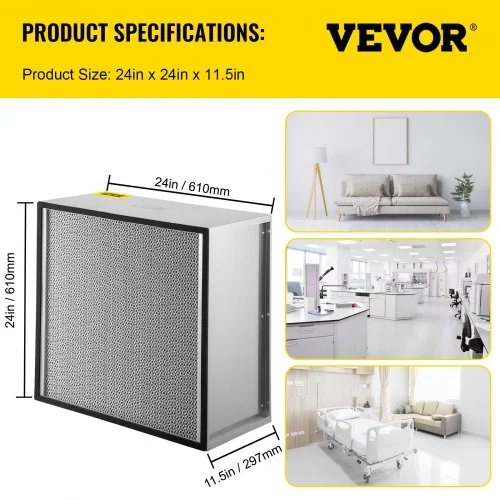
Standards and Classes of Different HEPA Filters
If you are looking for the HEPA filter dimensions, you must know different classes with their purification levels.
Here are different classes of HEPA filters to consider:
E11
Two ISO standards fall in this category. ISO 15 E has an efficiency of 95%. ISO 20 E can remove 99% of the particles ranging in size up to 0.3 microns. Purification efficiency is less than others.
E12
E12 is quite efficient, reaching a level higher purification than the E11. Two ISO standards have different purification efficiencies. For example, ISO 25 E can stop 99.5% of the particles. ISO 30 E can stop 99.9% of the particles.
H13
H13 has two standards of the ISO. It is next level compared to the purification of the E12. Its ISO version 35 H offers a purification of 99.95% levels. ISO 40 H offers a purification of 99.99% levels.
H14
If you want a more purified environment, use the better version, such as H14 and above. In the H14, you have two ISO standards. One is 45 H with a purification effectiveness of 99.995%. 50 H purifies 99.999% of the particles passing through the air systems.
U15
For keen purification lovers, U15 or better standards offer excellent purification from the air particles. ISO standard 55 U has an efficiency of ≥99.9995%, while ISO standard 60 U has an effectiveness of ≥99.9999%.
U16
U16 is quite an excellent option for air purification if you want to remove the particles from the air. Its two ISO standards include 65 U and 70 U. ISO 65 U offers a good level of air filtration, reaching ≥99.99995%. ISO 70 U has a purification level of ≥99.99999%.
U17
U17 has the highest levels of purification in the HEPA systems. If you want to remove ≥99.999995% of the particles, this is your right partner. It follows the ISO standards of 75 U with a high purity level.
| Filter Class | Filter Group | Efficiency | PPM Penetration |
| E11 | ISO 15 E | ≥95% | 50,000 |
| E11 | ISO 20 E | ≥99% | 10,000 |
| E12 | ISO 25 E | ≥99.5% | 5,000 |
| E12 | ISO 30 E | ≥99.9% | 1,000 |
| H13 | ISO 35 H | ≥99.95% | 500 |
| H13 | ISO 40 H | ≥99.99% | 100 |
| H14 | ISO 45 H | ≥99.995% | 50 |
| H14 | ISO 50 U | ≥99.999% | 10 |
| U15 | ISO 55 U | ≥99.9995% | 5 |
| U15 | ISO 60 U | ≥99.9999% | 1 |
| U16 | ISO 65 U | ≥99.99995% | 0.5 |
| U16 | ISO 70 U | ≥99.99999% | 0.1 |
| U17 | ISO 75 U | ≥99.999995% | 0.05 |
HEPA filter dimensions and size chart
If you are looking for the different HEPA filter dimensions, we have compiled a complete list of dimensions. Keep an eye on the following data with their size options.
- Nominal Size. The printed size on the HEPA filter is often nominal. Rounding off the data provides such a size, for example, 24”x24”x11”
- Actual size. It is the proper size of the HEPA filter. Sometimes, the actual size is smaller than the nominal size.
- Standard Size. The HVAC system deploys the standard sizes of the HEPA filters. Some common sizes are 12” x 12”, 16” x 20”, 20” x 20”, 24” x 24”
- Custom Size. These are tailored sizes of the HEPA filters. Not all manufacturers offer the custom size, but some do so to facilitate their consumers.
- Depth. 1” to 4” is a typical depth of a HEPA filter. It affects the filtration efficiency of a HEPA filter.
- Square feet of filtration area. Higher surface area means better capturing and more space for trapping the particles. Higher efficiency filters result in more area.
- MERV rating. This rating indicates efficiency. A higher rating means higher efficiency in the filtration.
VEVOR has some of the superior quality HEPA filters. Here is a list of HEPA filter dimensions from VEVOR!
| Model | W” x L” x D” | 1” SPWC CFM | Standard Efficiency |
| VV-AF-2424 | 24” x 24” x 11.5” | 150 | 99.97% |
| ZHP2301-H | 15.75” x 15.75” x 0.75” | 300 | 99.97% |
| VV-AFHXT-1616 | 16” x 16” x 0.8” | 600 | 99.97% |
| VV-AF-161612 | 16” x 16” x 0.8” | 900 | 99.97% |
Part 4: Choosing the Right HEPA Filter Dimensions
HEPA filter dimensions are necessary to decide on your room coverage. We have listed a detailed discussion on the HEPA filter dimensions and relevant factors to consider for your HEPA filters.
Requirements and considerations
Keep a note of the following points in your HEPA filters.
- HEPA filter dimensions. Take the accurate dimensions of your room. Measure the length, width, and height of your room walls and total area. Get details of the Clean Air Delivery Rate (CADR) of the HEPA filters. It must match your room size for efficient purification.
- Filter Efficiency. The higher the efficiency, the better the HEPA filter it is. Therefore, look for a higher efficiency rating of 99.99% or more. You can think about the different ISO-standardized HEPA filters per your needs.
- Types of filtration particles. The particle size threshold is 0.3 microns, but you must consider dust and other particles. Decide your exposure and purchase the right HEPA filter as per your particles.
- Filter Life. Who wants to make a deal that doesn’t last long? It is time to consider quality filters such as VEVOR HEPA filters that offer long-lasting durability and extended strength for better protection.
- Budget. Don’t forget the price as it can exceed your budget. But don’t fret, as VEVOR is still there for you, grabbing the affordable HEPA filters with the ultimate quality. Get cost-effective solutions right away!
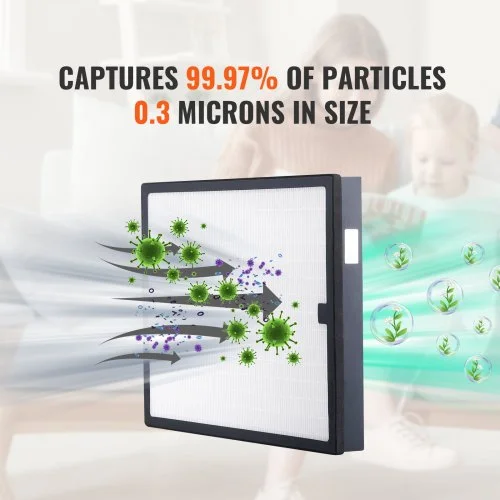
Common mistakes to avoid
Correct HEPA filter dimensions are sometimes crucial. Here are the following mistakes to avoid.
- CADR must match your room area. Decreasing size isn’t acceptable; however, increased size can provide more protection.
- Maintain your HEPA filters regularly for an extended life.
- Choose the right MERV (Minimum Efficiency Reporting Value).
- Compare the efficiency, particle type, and filter size for the given budget to be on the safe side.
Conclusion
Air purification is crucial for all the applications. So, there is no space for mistakes in this process. Do research before going for the first adventure of the best HEPA filter dimensions. Measure all your requirements and stand only with the best quality. Choose the proper dimension and consider the different sizes with your desired requirements. Go through the HEPA filter efficiency to know the exact performance.
VEVOR has a variety of HEPA filters with different sizes. High efficiency, versatility, and easy installation get you going with your favorite designs and quick installation. Invite the pure air in your dwelling. Shop the best air filters right away!

